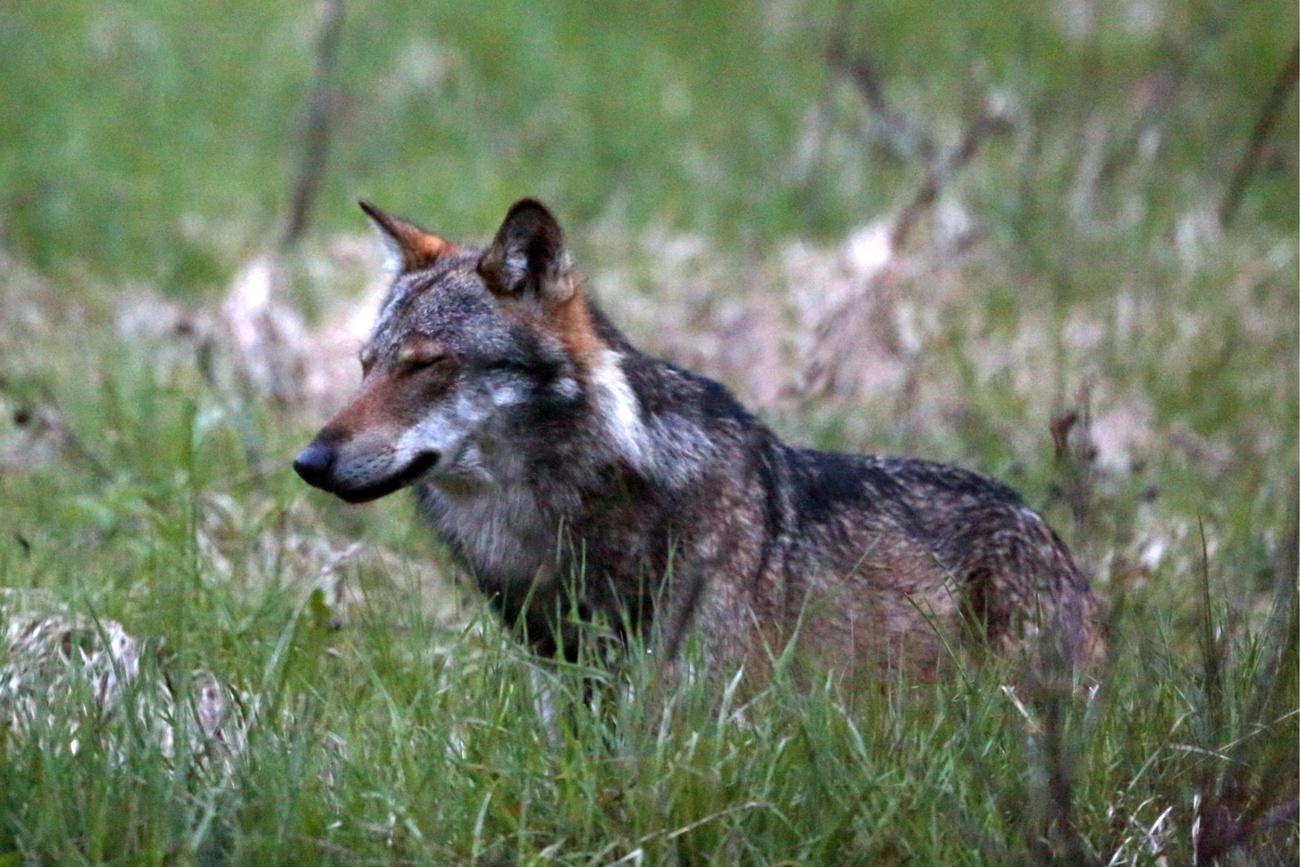
More than 1,000 wolf attacks expected this year

The number of deadly attacks on livestock by wolves has risen sharply in Switzerland in recent years and is expected to surpass 1,000 this year, says a Swiss wildlife group.
The number of attacks on livestock in Switzerland, home to an estimated 200 wolves, has been rising owing to the increase in the number of wolves and packs roaming mainly in the Alps.
“Within just a few years, wolf populations have increased massively across Switzerland. While there was just one pack in 2012, there are now 20,” Christian Stauffer, managing director of the Swiss-based Kora Foundation toldExternal linkBlick newspaper on Monday.
According to the foundation, which deals with predator ecology and wildlife management, 853 farm animals – mostly sheep and goats, but also cows and donkeys – were killed last year by wolves; over 1,000 are expected this year. This would surpass the record of 2020 when 922 attacks were registered; in 2012 there were 112.
The main regions affected by wolf attacks are cantons Graubünden, Valais and Ticino.

More
Wolves to be hunted more easily in Switzerland
The Swiss government wants to ease restrictions for culling the growing number of wolves in the country. Under the plan submitted to cantons and organisations for consultation, the culling of individual wolves which attack livestock is to be facilitated without the consent of the Federal Office for the Environment.
The new rules are due to apply to single wolves as well as wolf packs and could come into force next summer. They aim to cover an interim period before parliament has approved a legal reform.
Two years ago voters rejected an overhaul of the hunting laws amid controversy about the regulation of wolves, a protected species in Switzerland.

More
Wolf population thrives in Swiss Alps

In compliance with the JTI standards
More: SWI swissinfo.ch certified by the Journalism Trust Initiative






























You can find an overview of ongoing debates with our journalists here . Please join us!
If you want to start a conversation about a topic raised in this article or want to report factual errors, email us at english@swissinfo.ch.